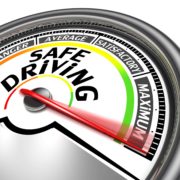What Do the Florida No-Fault Rules Mean for You?

Earlier this spring, a bill calling for the repeal of Florida’s long-standing, no-fault auto insurance system did not pass by Senate subcommittee. Since this bill is likely to resurface for further debate, we’ve gathered some facts and information to help you feel informed the next time it appears for voting.
What Does No-Fault Even Mean?
The Florida No-Fault Motor Vehicle Law means that if you get into a car accident, both parties must submit auto insurance policies to make claims. Regardless of who is at-fault, your own auto insurer is the one to contact to help with your medical bills, lost earnings, and out-of-pocket damages.
The current minimum requirements for a Florida auto insurance policy are $10,000 personal injury protection (PIP) and $10,000 property damage liability (PDL).
Many other states require a minimum amount of bodily injury (BI) insurance; however, because of Florida’s no-fault status, BI coverage is only requested in a handful of instances (e.g. if you’ve previously caused a serious accident, or have a DUI conviction).
What Does PIP Cover?
After paying your deductible (if you have one), PIP covers 80% of your medical expenses, up to that $10,000 limit per accident. In most cases, it also pays up to 60% toward lost wages and includes a $5,000 death benefit.
Is Minimum Coverage Enough?
The minimum allows you to drive legally in the state of Florida, but it leaves you unprotected in many situations. While your PDL will pay out to another driver if you’re at-fault, it won’t help you with any damages or repairs needed to your own vehicle! Even if you weren’t at-fault, there is always the risk that the person who caused the accident may be an uninsured driver, leaving you with no assistance to repair your property.
The minimum is also not enough for most vehicle lenders. If you are financing or leasing your vehicle, your lender may require you to carry collision and comprehensive coverage for the duration of the loan/lease. If you bought your car outright, opting for a collision and comprehensive policy is still a good choice to keep it protected from damages (especially if it is a newer vehicle).
What Would Change if the Bill to Repeal the No-Fault Law is Passed?

Auto insurance can be a tricky road to navigate. We encourage you to contact one of our knowledgeable and friendly agents at Synergy Insurance today to make sure you’ve got the best possible coverage to fit your needs!
Our Auto Accident Workbook is designed to help you in times of need with diagrams, safety information and more. Before getting behind the wheel, make sure you’re prepared in case of an
emergency and have this on-hand!











